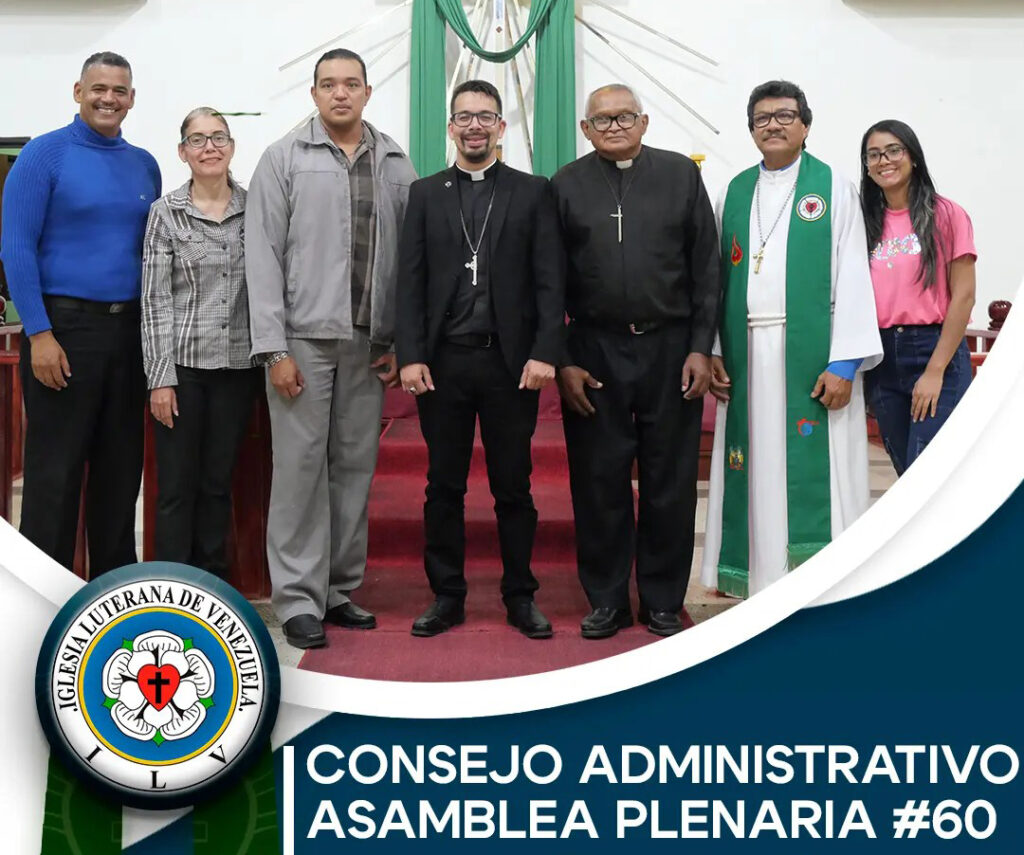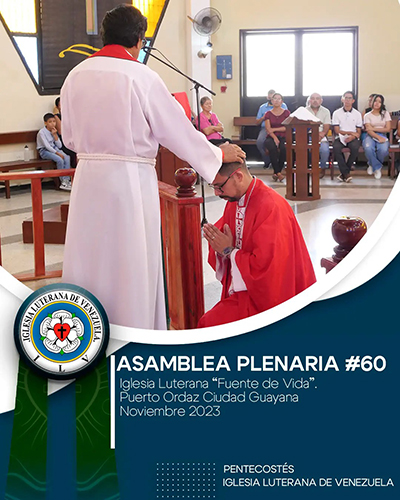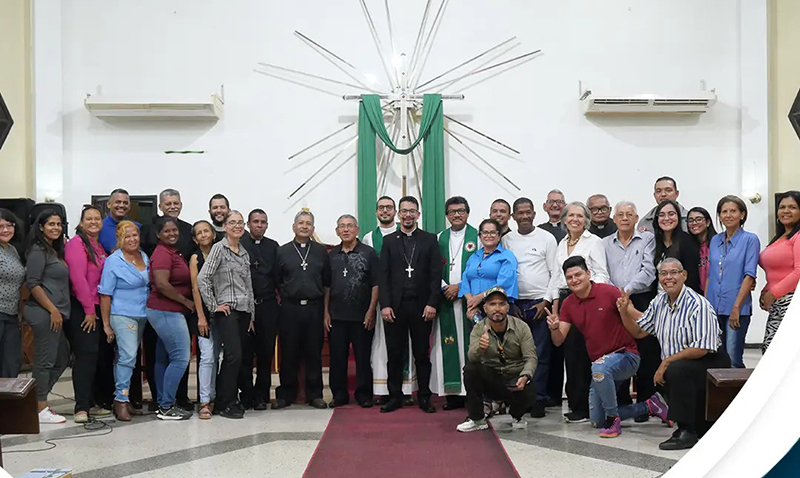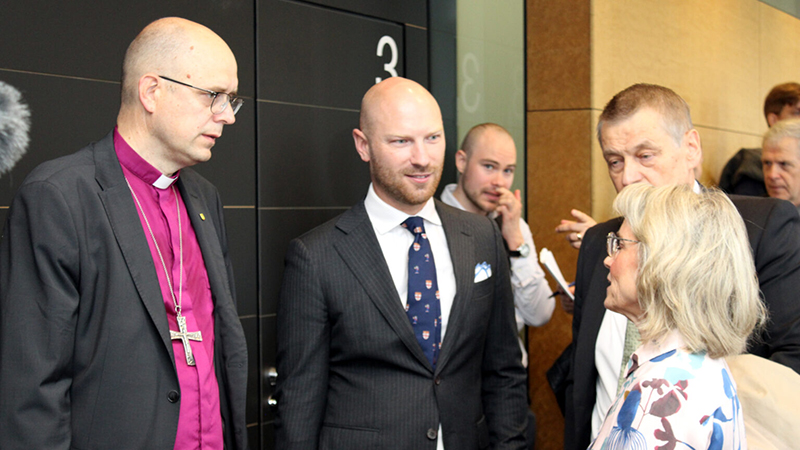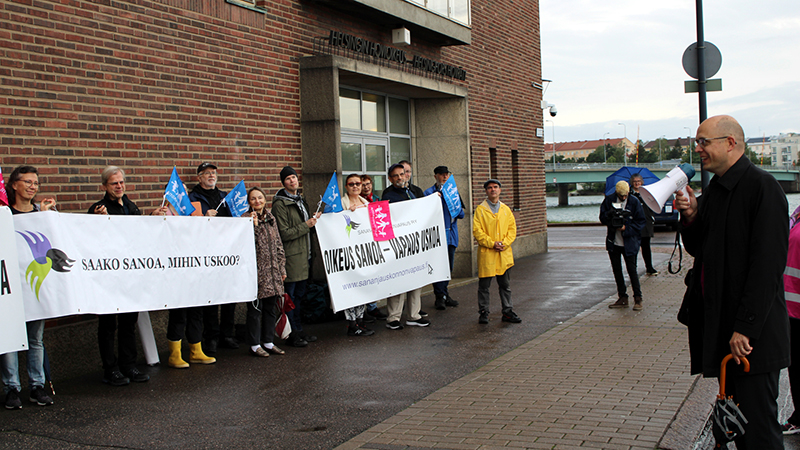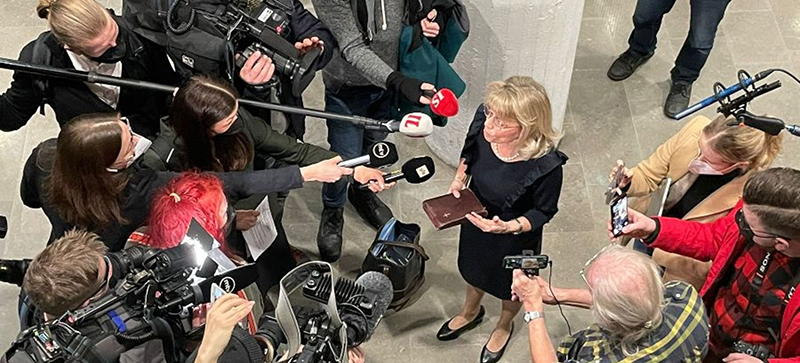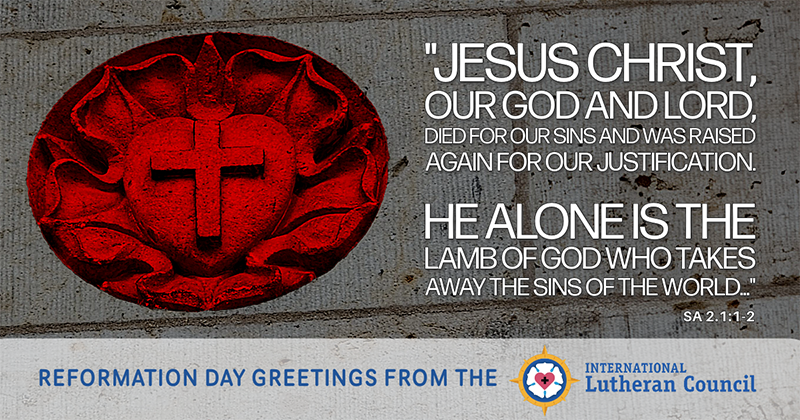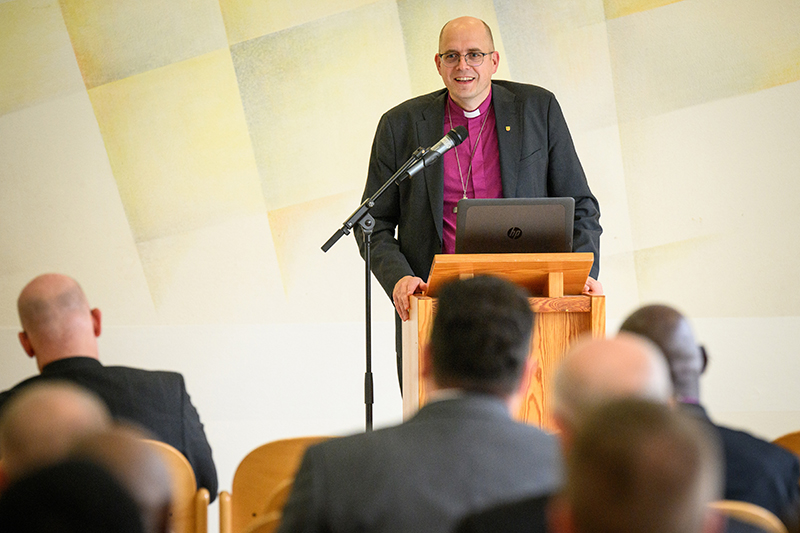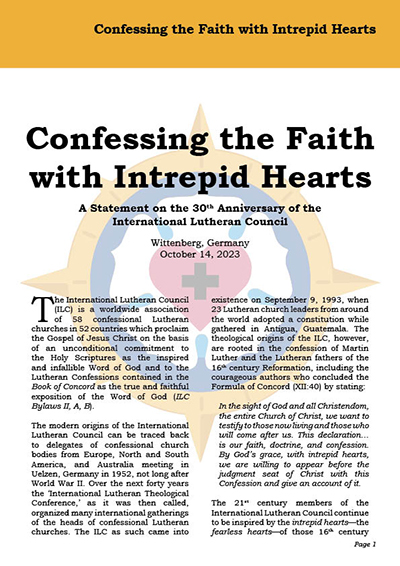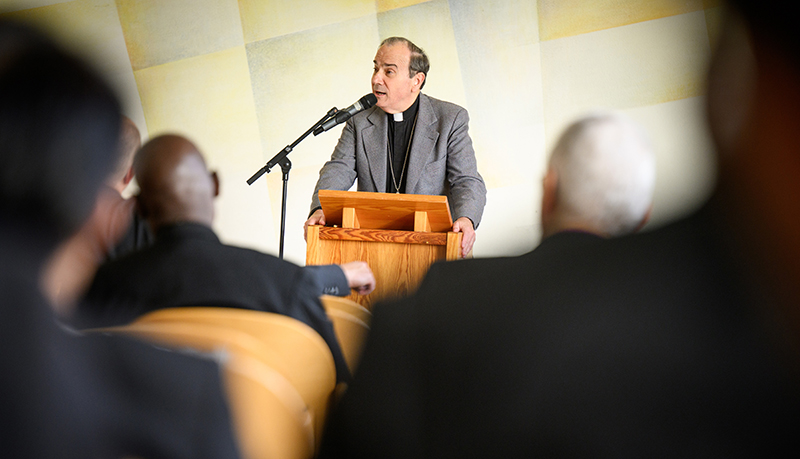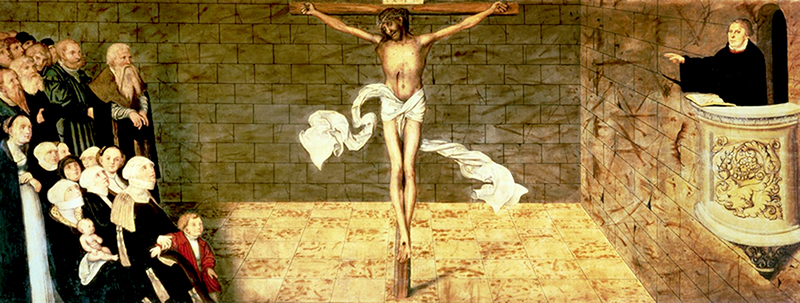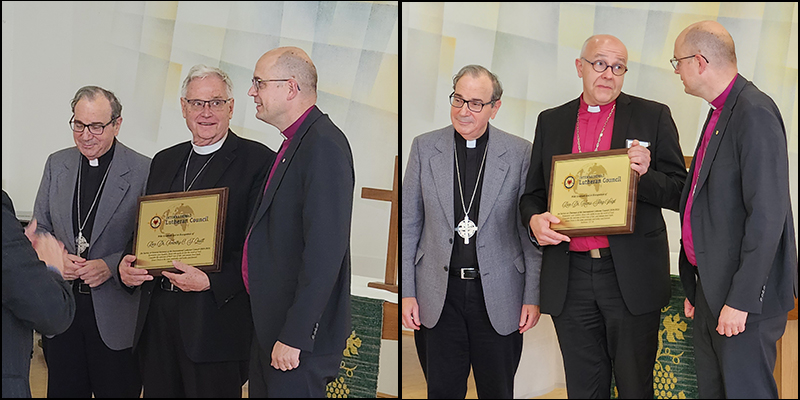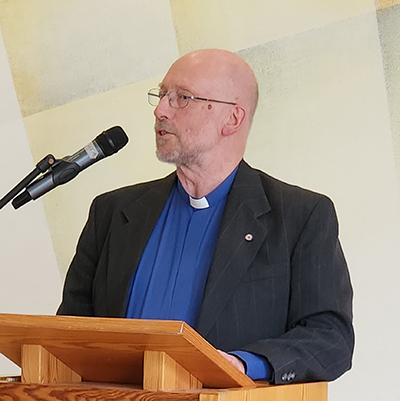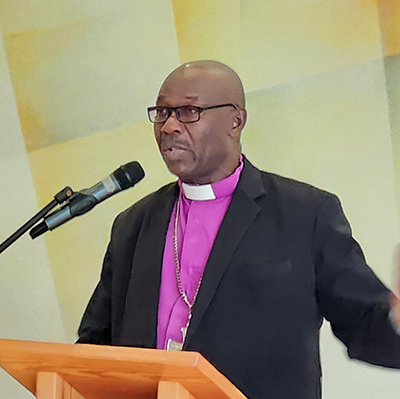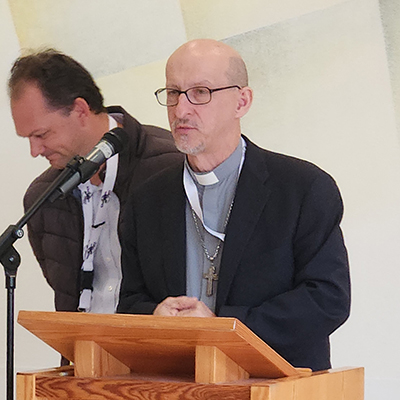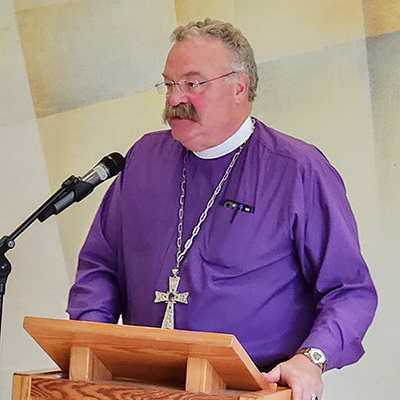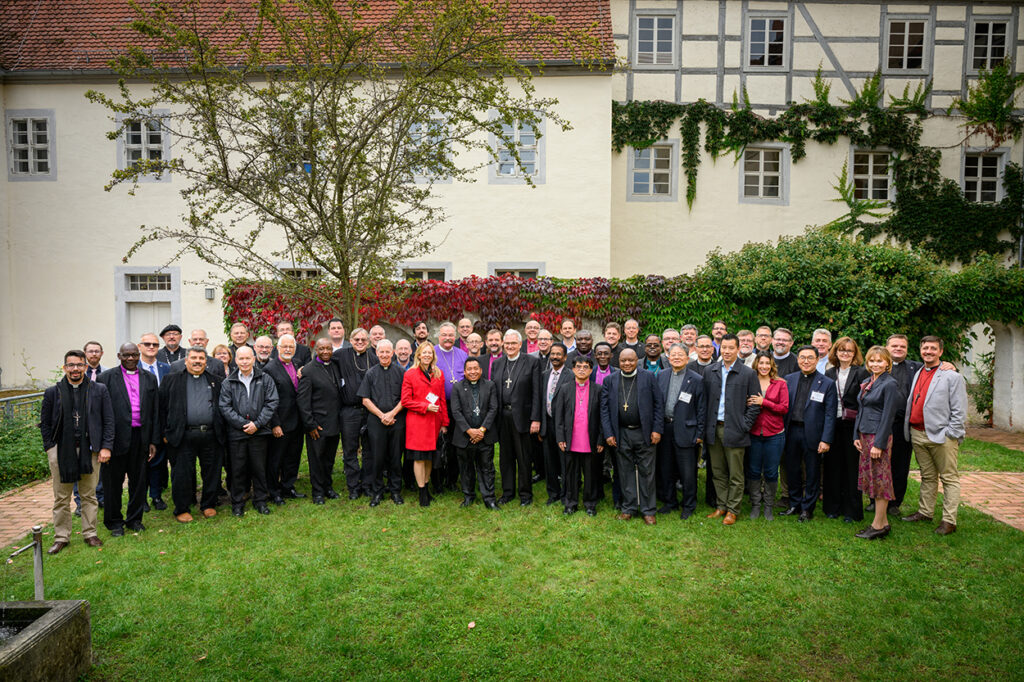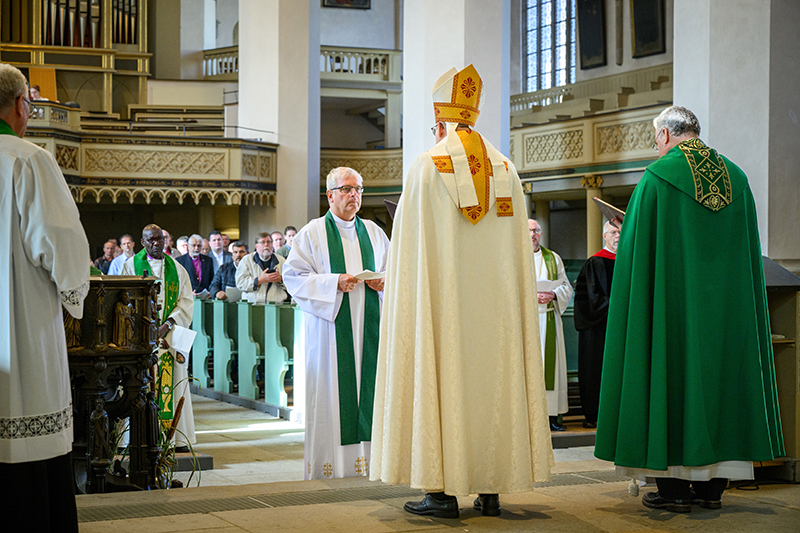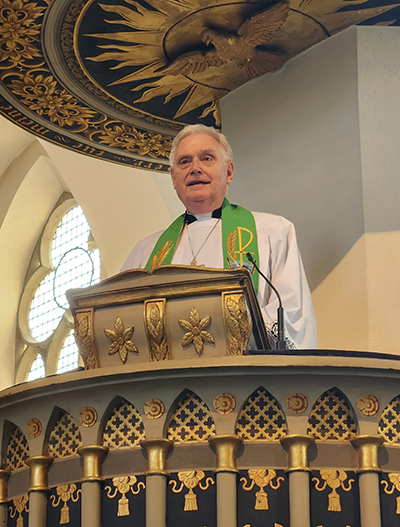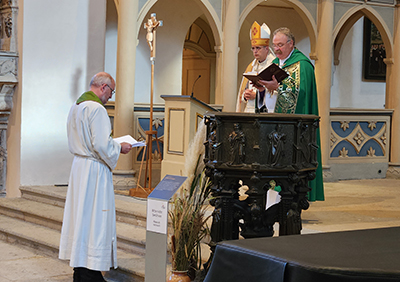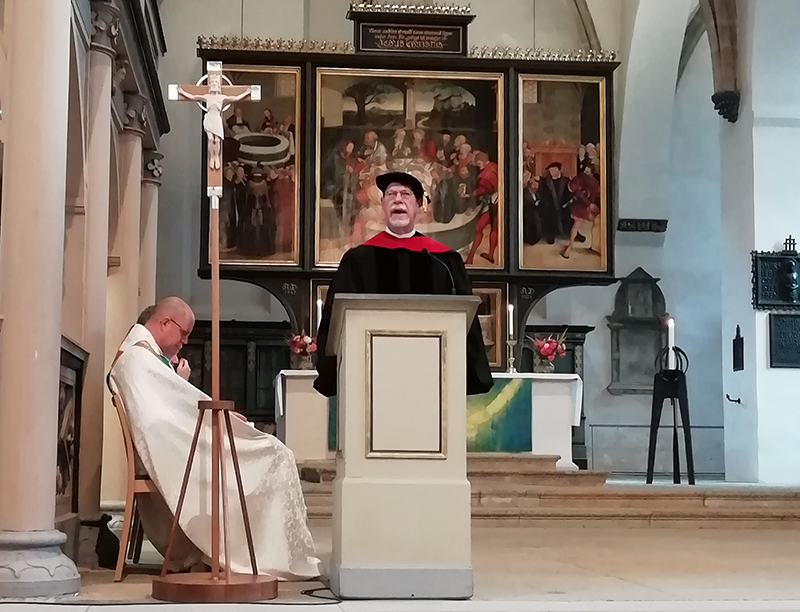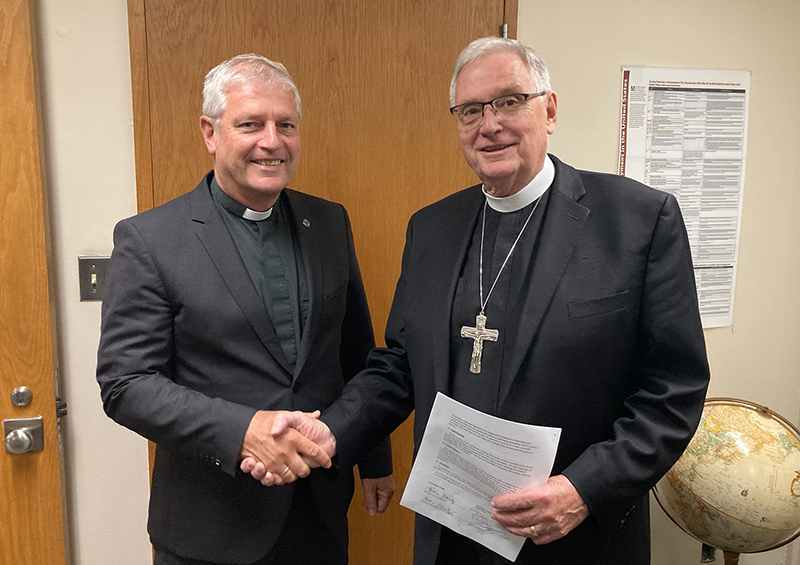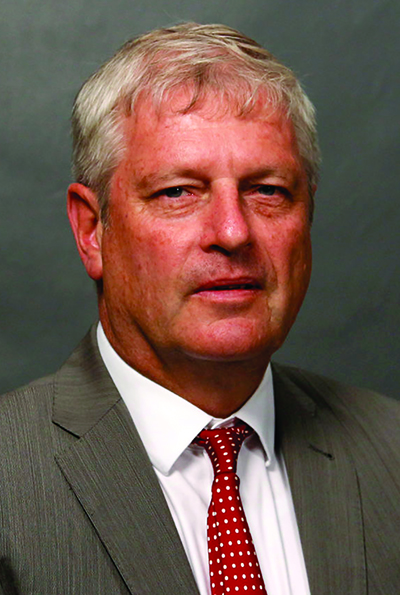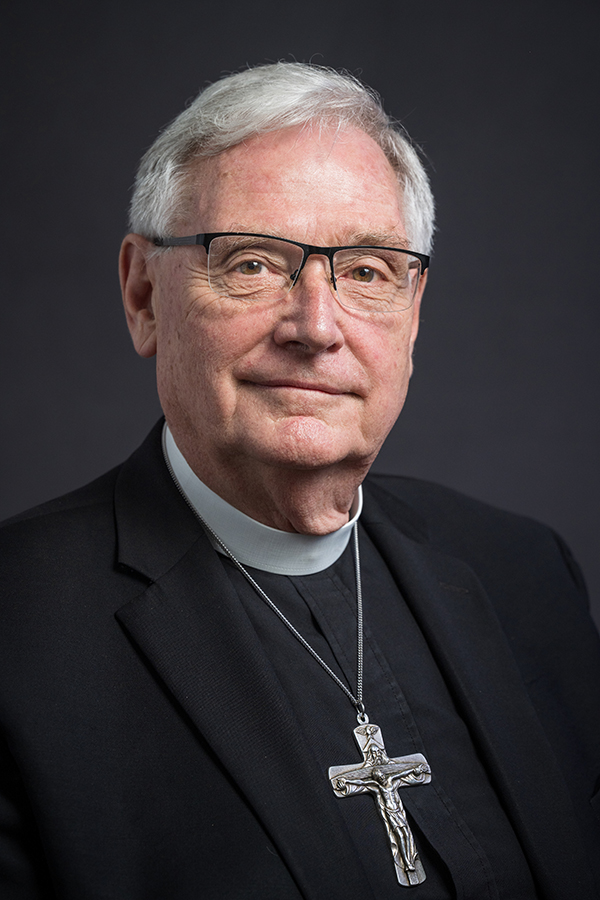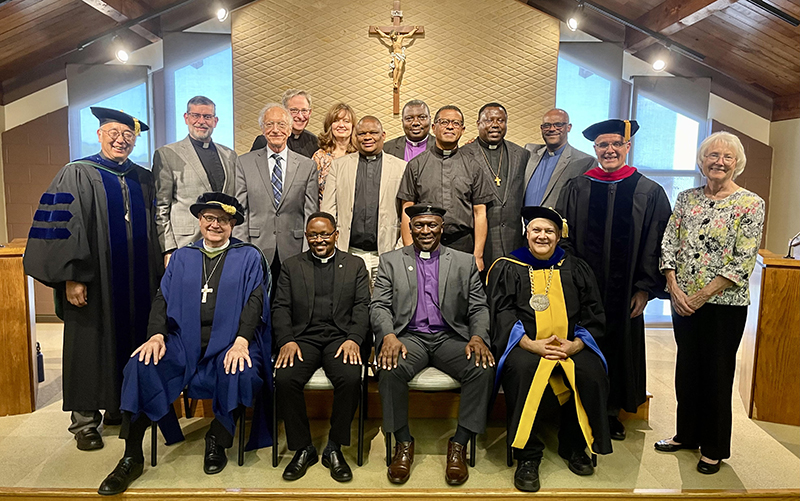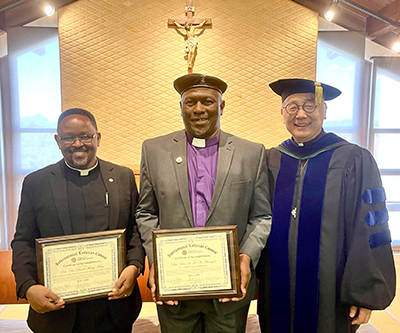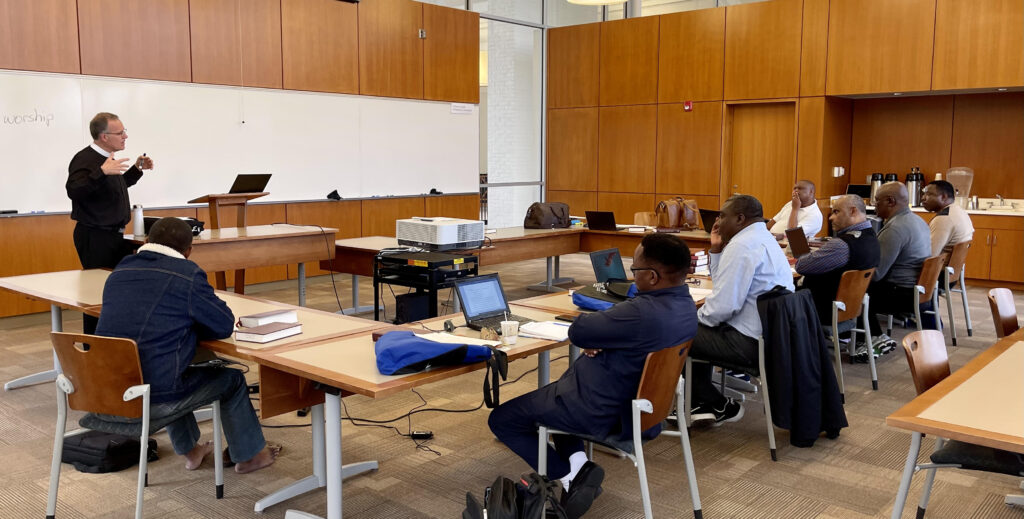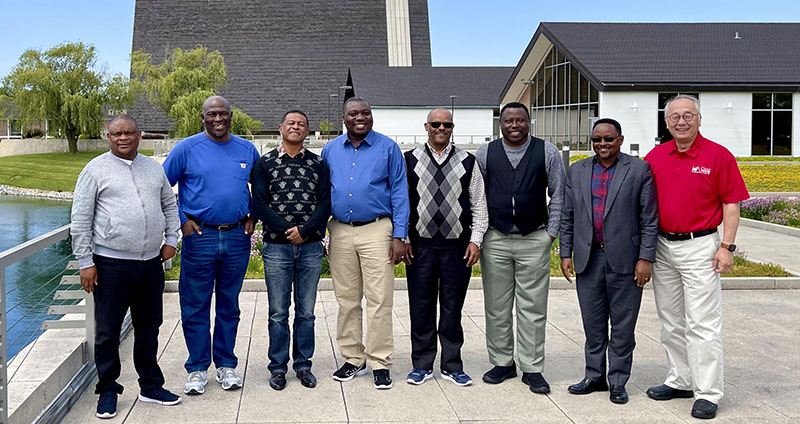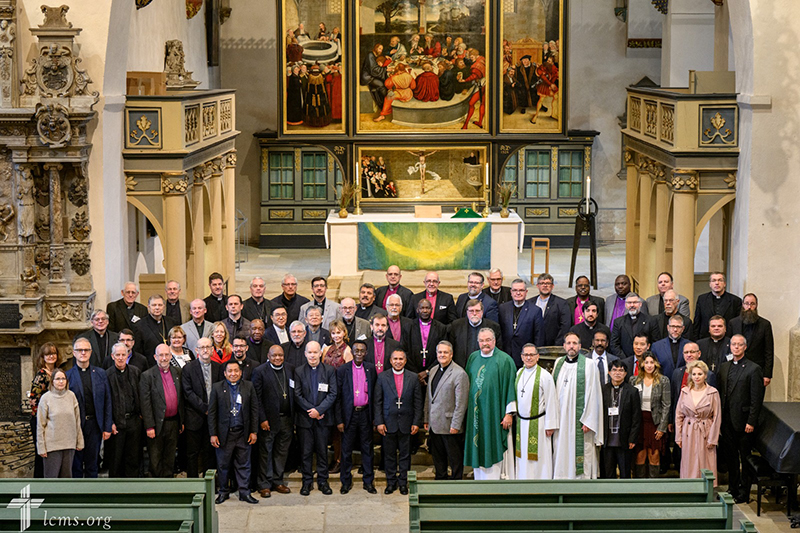
GERMANY – From October 9-13, The Lutheran Church—Missouri Synod (LCMS) hosted an International Church Relations Conference in Wittenberg, Germany, bringing together leaders of dozens of confessional Lutheran church bodies from around the globe. The theme for the event was “Confessional Lutheranism Under the Cross.”
The purpose of the conference was to “enhance unity in Christ and His Word in worldwide confessional Lutheranism through theological presentations, thoughtful discussion, invigorated friendship, and mutual support.”
In addition to many opportunities for worship, the conference featured nine sessions which engaged the conference theme in different ways. Presenters for these sessions included: LCMS President Matthew C. Harrison (“Luther under the Cross”); Rev. Dr. Roberto Bustamente of Seminario Concordia El Reformador in the Dominican Republic (“The Cruciform Pastoral Office”); Rev. Dr. Armin Wenz of Lutherische Theologische Hochschule Oberursel in Germany (“Confessional Subscription Under the Cross”); Rev. Dr. Joel Lehenbauer, Executive Director of the LCMS’ Commission on Theology and Church Relations (“Godly Women and the Way of the Cross”); Rev. James Krikava, Associate Director of the LCMS’ Office of International Missions (“Liturgy, Music, and the Glory of the Cross”); Bishop Juhana Pohjola of the Evangelical Lutheran Mission Diocese of Finland and Chairman of the International Lutheran Council (“Christian Community as the Answer to Diversity/Equity/Inclusion”); Rev. Dr. Jonathan Shaw, LCMS Director of Church Relations (“Lutheran Strategic Planning: Shaping Vision without Shedding Theology”); Rev. Matthew Anker of Australia (“Mobilizing People and Building Teams through Change”); and a closing session led again by President Harrison.
Following the conclusion of the International Church Relations Conference, the International Lutheran Council (ILC) also met in Wittenberg for anniversary celebrations.
———————

